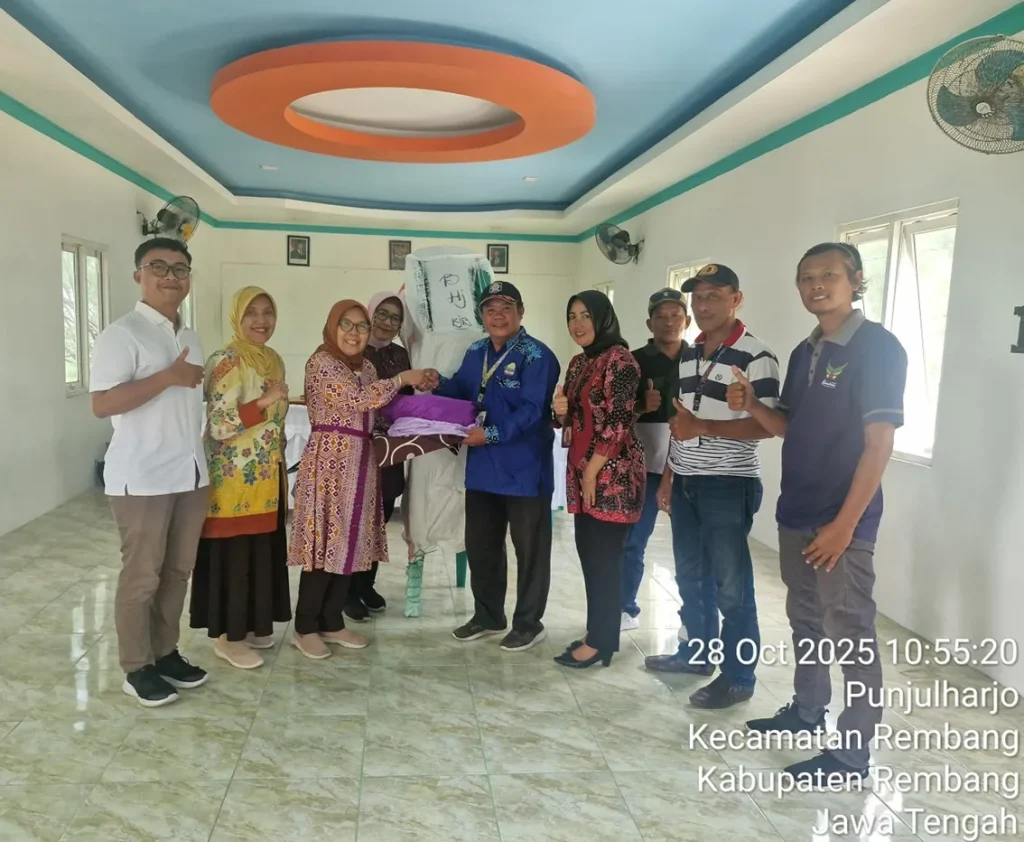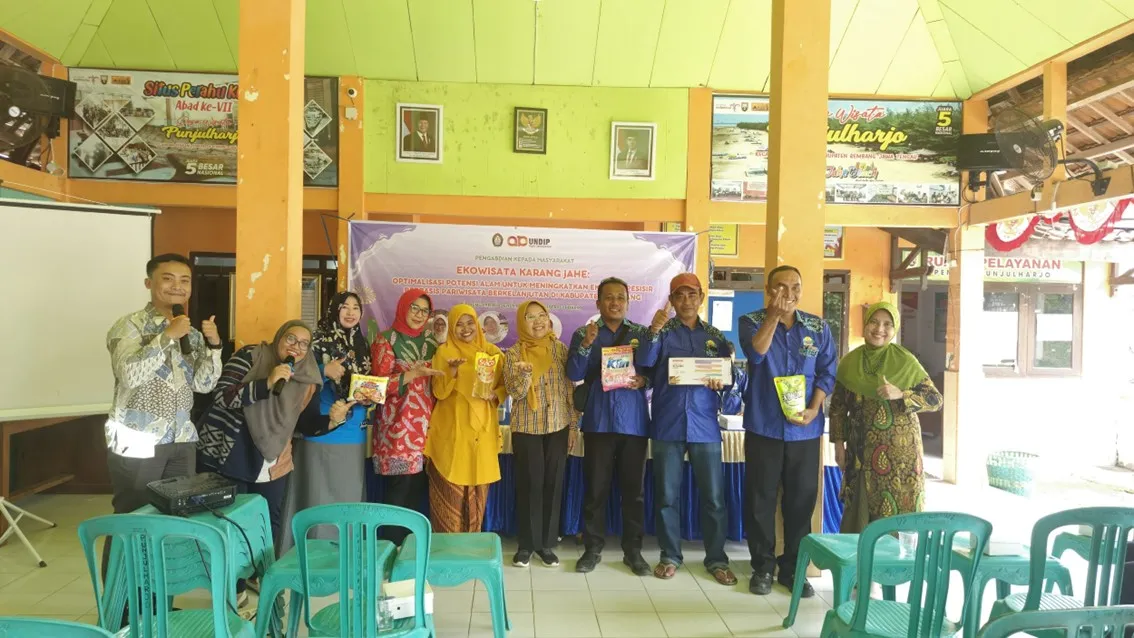Rembang, 28 October 2025 — Punjulharjo Village in Rembang District, Rembang Regency, has established itself as an example of successful coastal area adaptation. From an area once plagued by severe abrasion, this village has transformed into a leading ecotourism destination through a long process of learning and the courage to make decisive changes. Initial failed attempts at mangrove planting did not discourage the managers; they subsequently studied best practices from Tuban and switched to planting Casuarina trees, which became the turning point for ecological recovery and the foundation for tourism development.
As part of the commitment to ongoing mentoring, the Department of Public Administration, Faculty of Social and Political Sciences, Diponegoro University, conducted a community service program evaluation in Punjulharjo with the theme “Community Service Evaluation: Optimization of Karang Jahe Beach Ecotourism, Rembang District, Rembang Regency.” The activity was led by Prof. Dr. Dra. Kismartini, M.Si., along with a team consisting of Prof. Dr. Dra. Hartuti Purnaweni, MPA, Dra. Nina Widowati, and Yoga Aldi Saputra, S.A.P., MPA. The team was warmly welcomed by the managers of Karang Jahe Beach and BUMDes Abimantrana, including Mrs. Fikmah as the manager, Mr. Nurul Anwar as Deputy Director of BUMDes Abimantrana, Mr. Rosyid representing the tourism awareness group (Pokdarwis), and Mr. Salim Abadi in charge of facilities and infrastructure.
The evaluation session traced the unique journey of governance evolution at Karang Jahe Beach. Starting from youth group initiatives to combat abrasion, the growth of tourism brought new challenges in the form of unmanaged visits and rampant theft. In response, a management body was informally established before being formalized through the 2015 Village Regulation into the BUMDes Abimantrana business unit. During the forum, the community service team appreciated the public entrepreneurship spirit demonstrated by the managers: in the initial phase, they courageously took bank loans using personal certificates as collateral to relocate food stalls for better tourism spatial planning. That risky decision has now resulted in a stronger institution, broader employment opportunities, and a more vibrant local economic ecosystem.
The inclusive economic impact is clearly visible. The BUMDes business unit currently employs 31 permanent staff with salaries above the regional minimum wage. The well-organized ecotourism has also encouraged migrants to return to their hometown to start new businesses, expand creative economic networks, and spark tourism service innovations. Aligned with this, sustainability agendas continue to be promoted. Punjulharjo was selected as one of two pilot villages for the national Climate Village Program (Proklim) to be reported to the UN. The managers have also implemented environmental innovations, such as a system for recycling ablution water stored in tanks to irrigate nursery greenhouses, enabling water efficiency and vegetation maintenance to go hand in hand.
On this occasion, the UNDIP community service team also provided facility support in the form of tablecloths and chairs to aid management meeting operations. The activity concluded with a group photo symbolizing commitment to future collaboration. Through this evaluation, strategic steps for strengthening services, governance, and targeted green innovations were agreed upon, so that the optimization of Punjulharjo’s natural potential can continue to contribute to community welfare improvement without neglecting the principles of sustainable tourism.


